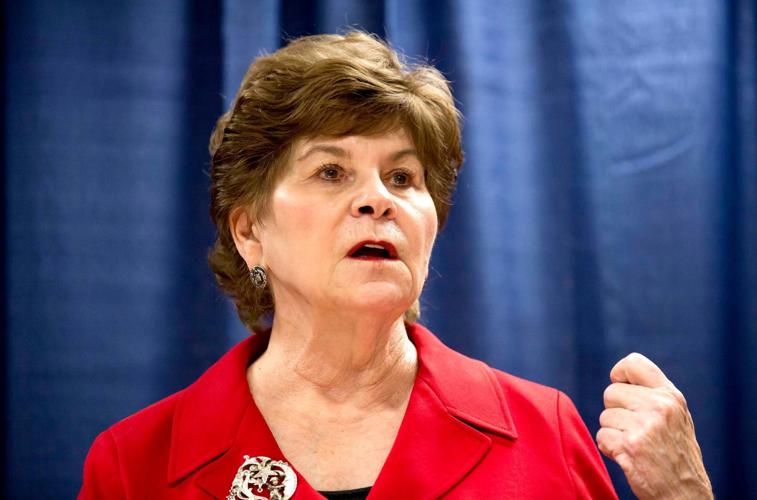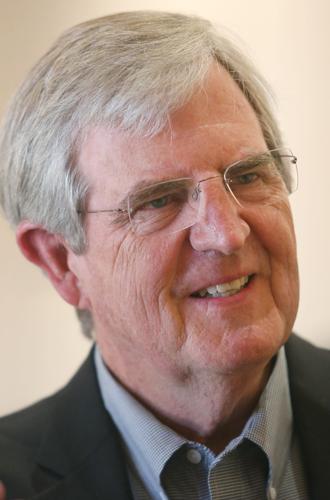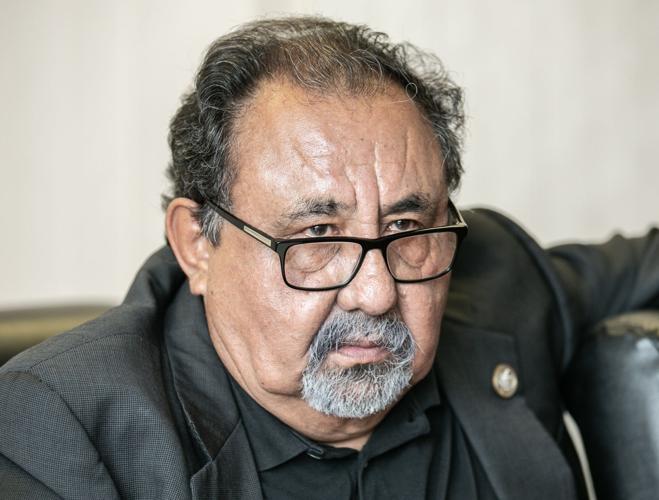Supporters of an initiative that would have given more flexibility in imposing prison sentences are criticizing the role outgoing Pima County Attorney Barbara LaWall played in getting the initiative thrown out.
Represented by heavy-hitting outside firm Snell & Wilmer, LaWall was the lead plaintiff in one lawsuit against the Second Chances Initiative, arguing that the 100-word summary was misleading. But she lost that effort.
Later, the Arizona Secretary of State’s Office invalidated such a high percentage of signatures that it put the initiative in question again. LaWall then intervened in that case as a plaintiff, still represented by Eric Spencer of Snell & Wilmer. This time she won.
The initiative, which had garnered about 375,000 signatures, according to supporters, needed 237,645 valid ones to make the ballot, but the rate of suspected invalid signatures was too high in a survey conducted by county recorders. The initiative was confirmed to be off the ballot by the Arizona Supreme Court on Aug. 21.
The initiative would have given judges more discretion as to whether and how much prison time to prescribe in some cases. It also would have allowed some prisoners deemed “non-dangerous” to earn their release after serving half their prison time by earnings through rehabilitation activities.
What struck supporters of the initiative as concerning was not only that LaWall sued to have the initiative thrown out — the effort she lost — but that she intervened in the second challenge, over signatures, and that at the same time the Pima County Recorder’s Office, represented by the Pima County Attorney’s Office, was the only county to take an adversarial stance against the “rehabilitation” of signatures at first claimed to be invalid.
“What’s not normal is when you go into court to rehabilitate signatures, to show that signatures are valid, that you have opposition from the county recorder, and then you also have Barbara LaWall involved,” said Roopali Desai, the attorney who represented the initiative’s supporters.
LaWall, who leaves office at the end of December after 24 years as county attorney, said she opposed the initiative because she doesn’t want the state to rewrite state statutes on victims’ rights and sentencing via the initiative process.
“I am not opposed to criminal justice reform. I am not opposed to prison reform. I am not opposed to giving people second chances,” she said.
“Writing statutes and putting them on the ballot as initiatives is a bad way to make criminal justice policy.”
“In this particular case, it (the initiative) overturns some of the mandatory sentencing laws, it overturns truth in sentencing,” she said. “There were a lot of very technical things that I found objectionable.”
Supporters of the initiative said what she did invalidated the apparent will of the voters to consider prison reform.
“My concerns, as they stand now, are that nearly 400,000 signatures were gathered during COVID. I think that sends a really strong message about the dedication and interest and investment in this very first step to allow non-violent offenders to earn early release,” said Laura Conover, who will succeed LaWall as county attorney in January.
“From a sheer democracy standpoint, I’m disappointed the voters aren’t going to have a choice.”
She also said she’s worried that LaWall’s private case against the initiative influenced her office’s stance, represented by Deputy County Attorney Daniel Jurkowitz, in the signature case.
LaWall said there was no communication between her and Jurkowitz or anyone else in her office about the case.
“Beyond that,” Conover said, “I think from a transparency perspective it remains really important to understand who paid for the private lawsuit.”
LaWall said her office didn’t pay for it. Beyond that, she said, “I was under the impression that the representation provided was pro bono, but I never asked or inquired.”
Tim Steller
Huckelberry defends World View
In a blistering memo this week, Pima County Administrator Chuck Huckelberry took aim at a Republican supervisor, a conservative political blog and the Goldwater Institute for what he labeled a “coordinated campaign” to harm space technology company World View.
The unusual seven-page letter sent to the Board of Supervisors criticizes Supervisor Ally Miller; Miller’s staffer Lori Hunnicutt, who operates the right-wing political blog the Arizona Daily Independent; and others for “false or misleading information” that states the company has closed, is moving operations or competing with a former CEO who has launched a new company.
“World View’s current leadership has communicated to me its concern about the most recent misleading information and ongoing disparagement of the company,” Huckelberry wrote. “Equally concerning is the fact that Raytheon, the Tucson Airport Authority, industrial real estate brokers, and other companies and individuals quickly inquired with the Pima County Economic Development Office asking if World View is closed and/or relocating to Florida.”
The memo cites tweets, articles and statements from the group that have the “potential effect of damaging the company’s reputation, reducing its revenue, and curtailing venture capital investment.” It includes over 80 pages of addendums including news articles, county contracts and quarterly employment numbers.
“The misinformation campaign against World View by Supervisor Miller, Ms. Hunnicutt, the ADI, the Goldwater Institute and (Goldwater Institute lawyer Timothy) Sandefur is driven by politics,” Huckelberry wrote, adding: “However, in their campaign to discredit Pima County, they seem intent in ensuring the failure of a well-respected and well-run private sector business in Pima County. This is being done at a time of business disruption and economic uncertainty caused by the COVID-19 pandemic.”
Justin Sayers
Grijalva returns home
U.S. Rep. Raúl Grijalva has gotten over COVID-19 and is happy to be home in Tucson. After his diagnosis, Grijalva said, the worst that happened was he had a head cold for three or four days, without any significant respiratory symptoms. But he had to remain in Washington, D.C., in quarantine.
“For 14 days I was like a caged animal,” Grijalva said.
But then he tested negative for the virus in D.C., allowing him to come home Aug. 16, and he has since tested negative for the virus again in Tucson, he said.
Tim Steller









